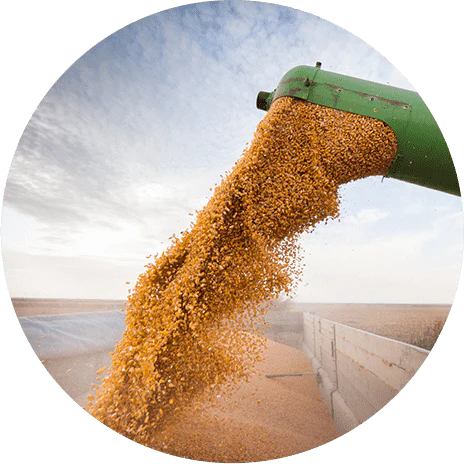
- When to plant:
- Spring, Fall, Winter
- Fertilizer:
- Varies
- Seeding rate:
- 5 lbs. per acre
- Overseeding rate:
- 2 lbs. per acre
- Seeding depth:
- 1/8 - 1/4 inch
- Ideal ph:
- 6.0 - 6.5
- Gmo:
- No
- Inoculant needed:
- No
- Coated or raw:
- Raw
- Lifecycle:
- Annual
- Climate zones:
- Cool Season, Transition Zone, Warm Season
Appin Forage Turnip was bred for fast, vigorous establishment and quick maturity (60-100 days). It is firmly anchored in the ground for minimum wastage. Appin has a significantly-higher proportion of leaf yield compared to other Turnips and is multi-crowned for improved regrowth potential. Its high leaf-to-bulb ratio results in a very leafy crop with high digestibility. Appin is club root tolerant with good frost resistance.
Product Information
- Application or Use: Pasture, Cattle Grazing, Food Plot, Cover Crop
- Germination Time: 5 - 7 days, under optimal conditions
- Growing Locations: Warm Season, Transition Zone, Cool Season
- Height: Up to 3 feet
- Sunlight Requirements: 4+ hours, full sun for best results
- Advantages: Bred for fast, vigorous establishment and quick maturity (60 - 100 days); excellent frost resistance for planting in cooler climates.
- When to Plant: Recommended planting time is spring, fall and winter when nighttime temperatures are consistently below 65 degrees.
Product Detail
- High yield
- High digestibility
- Fast establishment
- Cool season annual
- Good frost resistance
Product Information
Appin Forage Turnip is a cool-season annual that matures quickly. This food plot seed is easily established and has great regrowth potential if pressured by grazing. Appin Turnip is also a great option for a winter plant. Deer will love this field!
*Product packaging may appear different than what is pictured.
Plant 1/4 to 1/2 in. deep and at a rate of 2-5lbs per acre. Seed can be no-tilled into suppressed sod, or seeded into a conventionally-prepared seedbed. If tillage is conducted, let the first flush of weeds germinate, then till the field one more time to control weeds. After final tillage pass, firm soil with a cultipacker, then either drill or broadcast seed. Following seeding, cultipack field once more to improve seed to soil contact. Turnips like cool, moist soil conditions.
There is potential for grazing as early as 60 days. Start by grazing for no more than 1 to 2 hours a day. Slowly increase to a maximum intake over at least 7 to 10 days to allow rumen to adjust. Feed extra fiber during grazing, and allow access to grass pasture. Consult with your nutritionist to ensure ration is balanced. Do not overgraze if planning multiple grazings. Do not plant Turnips on the same site more than two consecutive years due to disease buildup. Turnips mature in 12 to 14 weeks. Fertilization enhances the productivity of Turnips. Utilization is increased because after the tops are eaten off, stock cows, dry cows and ewes eat the bulbs. Grazing of Turnips may taint milk so it is advised to keep keep dairy cattle off of the turnips for 3 to 4 hours before milking.
For best results, please review our Planting Guide and the specific product description before planting. Each product has recommended planting methods, timing, and seeding rates that are important for successful establishment. Following these guidelines will help ensure optimal performance and stand success.

Seed Quality
Hancock Seed is dedicated to delivering the best seeds possible to our customers. Hancock Seed grows and harvests many of our products, and we acquire the majority of the rest from other family farmers.
All these seeds are processed, packaged and shipped from Hancock Farm. This helps us ensure that our high standards are met. Unlike much of the competition, we refuse to sell you a seed that was not gathered during the last harvest. You will always receive fresh product from Hancock.
Every seed we grow comes with 40 years of experience behind it...you can rest assured that all of our products are cultivated in a method that assures its potential for growth.

Your cart ( 0 )

Appin Forage Turnip was bred for fast, vigorous establishment and quick maturity (60-100 days). It is firmly anchored in the ground for minimum wastage. Appin has a significantly-higher proportion of leaf yield compared to other Turnips and is multi-crowned for improved regrowth potential. Its high leaf-to-bulb ratio results in a very leafy crop with high digestibility. Appin is club root tolerant with good frost resistance.
Product Information
- Application or Use: Pasture, Cattle Grazing, Food Plot, Cover Crop
- Germination Time: 5 - 7 days, under optimal conditions
- Growing Locations: Warm Season, Transition Zone, Cool Season
- Height: Up to 3 feet
- Sunlight Requirements: 4+ hours, full sun for best results
- Advantages: Bred for fast, vigorous establishment and quick maturity (60 - 100 days); excellent frost resistance for planting in cooler climates.
- When to Plant: Recommended planting time is spring, fall and winter when nighttime temperatures are consistently below 65 degrees.
Product Detail
- High yield
- High digestibility
- Fast establishment
- Cool season annual
- Good frost resistance
Product Information
Appin Forage Turnip is a cool-season annual that matures quickly. This food plot seed is easily established and has great regrowth potential if pressured by grazing. Appin Turnip is also a great option for a winter plant. Deer will love this field!
*Product packaging may appear different than what is pictured.
Plant 1/4 to 1/2 in. deep and at a rate of 2-5lbs per acre. Seed can be no-tilled into suppressed sod, or seeded into a conventionally-prepared seedbed. If tillage is conducted, let the first flush of weeds germinate, then till the field one more time to control weeds. After final tillage pass, firm soil with a cultipacker, then either drill or broadcast seed. Following seeding, cultipack field once more to improve seed to soil contact. Turnips like cool, moist soil conditions.
There is potential for grazing as early as 60 days. Start by grazing for no more than 1 to 2 hours a day. Slowly increase to a maximum intake over at least 7 to 10 days to allow rumen to adjust. Feed extra fiber during grazing, and allow access to grass pasture. Consult with your nutritionist to ensure ration is balanced. Do not overgraze if planning multiple grazings. Do not plant Turnips on the same site more than two consecutive years due to disease buildup. Turnips mature in 12 to 14 weeks. Fertilization enhances the productivity of Turnips. Utilization is increased because after the tops are eaten off, stock cows, dry cows and ewes eat the bulbs. Grazing of Turnips may taint milk so it is advised to keep keep dairy cattle off of the turnips for 3 to 4 hours before milking.
Instructions
For best results, please review our Planting Guide and the specific product description before planting. Each product has recommended planting methods, timing, and seeding rates that are important for successful establishment. Following these guidelines will help ensure optimal performance and stand success.
















